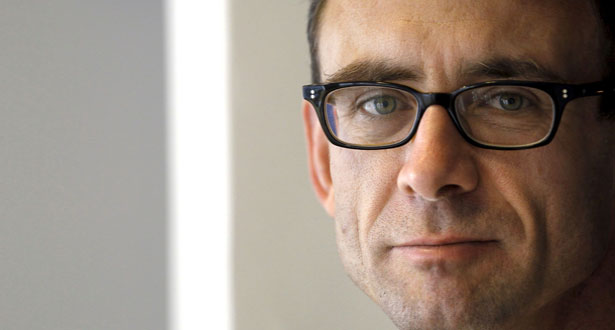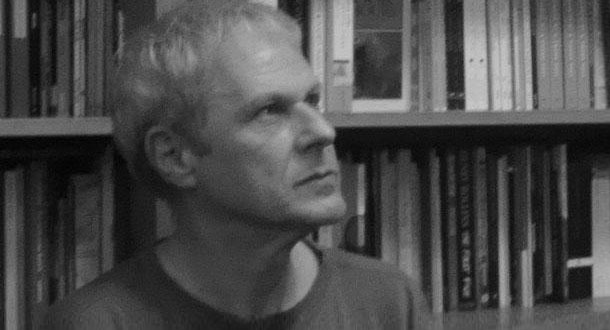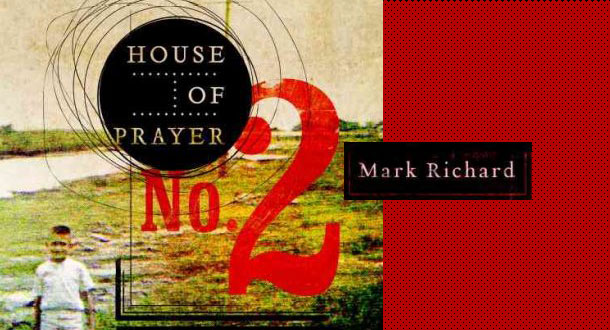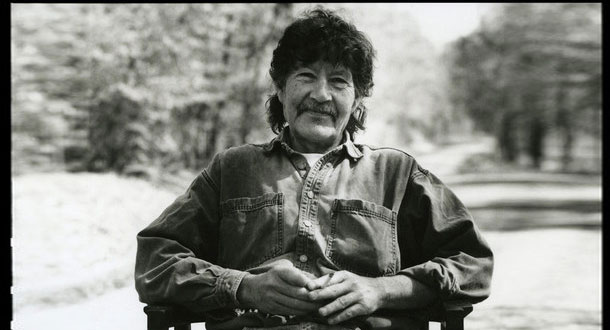Alex Segura wears many hats.
He's a new dad. He does PR for Archie Comics. He's the editor for Dark Circle Comic. He teaches a class on pitching and writing comics for LitReactor. The second entry in his Pete Fernandez mystery series, Down the Darkest Street, just came out.
Honestly I'm a little shocked he had time to do an interview with us.
But here we find ourselves. Down the Darkest Street is an excellent series in a series with solid legs. Pete Fernandez is my favorite kind of protagonist: He ain't perfect, and he stumbles rather than strides into victory, but in the end, he does the right thing and gets the job done.
(Pete shares those traits with my protagonist, Ash McKenna, which may sound a little self-serving to mention. But me and Alex did co-write a short story called "Bad Beat" featuring a teamup between Ash and Pete, which we talked about here, so I'll just call it synergy.)
To mark the release of his new book, Alex and I talked about PR, Archie, and what he's got coming up next. His first answer alone—a crash course in how to sell yourself as a writer—is worth the price of entry.
You've gotten some great coverage on Down the Darkest Street, which, no doubt, is due in part to your background in PR. In terms of promotion, what's the biggest mistake a writer can make? The kind of thing that'll turn off outlets rather than entice them?
The response has been great. My PR background helped—but I definitely wanted to be the “author” in this scenario. I didn’t want to feel like I was wearing two hats. I did do some outreach and make connections, but the book’s promotional success is thanks to Jason Pinter and Polis Books. What I did was complementary and additive, not structural. The reality is, Jason knows his stuff and he’s really great at timing, which is such an important part of PR. Knowing when to pitch a story. “How” is equally important. I think the key to book publicity is knowing your timeline and milestone moments—basically, the beats you have to hit in order to maximize the attention you do get.
For example: a big, mainstream media profile is great. But it’s less great if it hits when your book isn’t available for pre-order. You need to try your best to coordinate the attention so it lands at the right time and resonates, otherwise it runs the risk of becoming noise. Also, different audiences are primed to know about your book at different times. You want the big, major press to hit when the book is in stores or on sale. Casual buyers will get turned off by pre-ordering or the lack of instant gratification, while hardcore book people know the game. Look, you can’t always control when the stuff happens—a lot of it is up to the press outlet. But you can control when you pitch something, or how, and that’s a big factor. And hey, good publicity never hurts—there will always be someone that reads the story and is motivated to buy your book. You just want to stack the odds in your favor, and you want to make it as easy as possible to turn the publicity into sales, which is a mysterious formula. Some books get a ton of attention and don’t sell. Some books get zero buzz and then start to sell. There’s no exact science. But there are things you can do to make sure you stack the deck a bit. You want the work to pay off as much as possible.
In terms of mistakes, I think authors—and, let’s face it, a lot of authors have to do some hustling to get the word out, from indies to the big publishers—need to be as prepared as possible when approaching the press. You don’t get multiple shots. Reporters don’t want to hear “hey, I have a book, can you write about me?” That might fly if you’re approaching someone you know, or an outlet that knows your work well, but otherwise you’re making the reporter’s job harder. Why should they care? What’s your narrative? What’s the story? What makes your book unique when compared to the hundreds of other books coming out the same day? Is there an exclusive element you can offer? You need to step back and analyze what your plusses are, and what outlets those plusses might appeal to. So, for me, it made sense to reach out to Miami outlets, comic book outlets, hell, we even reached out to some vegan blogs, too. Anything that expands your story outside of the default places that cover your genre are good. You should always cater to the core, dedicated sites and readership, of course—but the purpose of PR, when done right, is to expand your audience and awareness. Get people who might be interested more interested and potentially buying your book.
Most importantly, you want to make sure you have a hook before you try and sell yourself. You don’t want to have to scramble when a reporter asks *why* they should cover your book. That’s assuming they respond at all, if your initial query doesn’t include that info. The hook doesn’t have to be anything out of this world, either. You’re basically just telling a reporter what’s interesting about you and your work. Sounds easier to do than it is, but not impossible. I could go on about this for a while, but that’s the general stuff. There’s a LitReactor class in here, maybe.
I also think people forget that social media and publicity go hand in hand. They’re cousins, basically. It’s all about how you show yourself to the press and fans. You’re externalizing yourself and your books. The challenge authors face is finding the balance between selling yourself—“Hey, my book is on sale!” “Please leave a review!”—and sharing interesting content/personality. It’s tough. There are times, I think, where you’ll lean more toward selling—like when your book is about to go on sale or just hits. I think that’s understandable. But I feel like fans/followers want more, on average, than just sales-driven posts. They want to get a feel for you as a person and what your tastes are. I see a lot of authors who veer too much in either direction. They’re either just pushing their stuff non-stop, which can become white noise, or they’re way into the cult of personality, which only a select few authors can really pull off.
And while we’re talking about social media, my one bit of tonal advice is to try and keep it positive or at least leaning toward positive. We all have things to gripe about, and there’s a time to do it, but I don’t think the “woe is me”-type stuff really helps push your work. Like most of PR, it’s not scientific but more of an art form—you go by your instincts and gut most of the time. So, if you disagree with me and have found your own method that works, cool. Your mileage may vary.
You wear several hats—writer, editor, and now, new dad. How do you find the balance between the three?
It’s tough, not gonna lie! I think the trick is to just know how to prioritize your work and deal with the immediate instead of worrying about what’s going to happen two years down the line. Right now, in addition to the new dad stuff (which is a ton on its own), I’m revising the third Pete novel, finishing up the script to Archie Meets Ramones, writing the fourth Pete novel and working on two comic pitches, plus day job and freelance writing for a few places.
There are definitely weeks that feel very daunting when they start. But I’ve found that as long as I tackle things one at a time and stay focused, I can power through it. Though, like most people, I’ve had to learn to say no to certain things. It takes a bit for writers to realize they can’t do everything that’s asked of them, and you have to be ready to decide which stuff you need to do because it’ll help with the main goal - the writing and your books - and which stuff you need to pass on, no matter how cool or interesting it might seem. There are just not that many hours in the day, unfortunately.
News just broke that Riverdale is coming to the CW. Do you get to play a role in that?
Nothing creative, no. I do get to interact with the show in my role as PR guy at Archie, though, and that’s very cool. People are going to be really intrigued when they see the pilot, and it’s really exciting to see the show picked up. It’s a great time for Archie Comics.
Speaking of Archie, are you a Betty guy or a Veronica guy?
I love both characters—they’re so different and yet they manage to remain friends. It’s a really interesting dynamic. I really love that their relationship doesn’t just hinge on Archie, either. They’re close to each other and have their own chemistry. They just both happen to like Archie. But I think they’d be frenemies even with Archie out of the picture.
Down the Darkest Street is your second entry in the Pete Fernandez series—how much of yourself do you see in Pete?
Some broad strokes are similar. We’re both from Miami, we’re both Cuban-American, we both have a newspaper background. He reminds me of someone I may have known when I was younger, or someone I could have gone to school with. The kind of person you run into years later and wonder why you didn’t stay in touch. Pete is much more stubborn and bull-headed than I am, more willing to take risks and court danger. I think in many ways, our characters are externalized versions of ourselves—from the main protagonist to the bit player who steals a scene. Pete is the kind of character I wanted to write about when I started the series—I wanted to show someone’s journey from “regular” person to PI/hero, and the bumps and bruises that would come with that. I also wanted him to be someone like me and my friends—someone we could relate to.
What lessons did you learn writing the first two books that you're applying to the rest of the series?
I feel like I’ve learned more about myself as a writer and what I want out of a book and this series, in particular. I want to capture a certain period of time for Pete and his cast and show how he evolves from a screwed up, aimless washout into something more. I also, most importantly, learned the value of putting in the time. If you don’t sit down and crank—writing every day—you’re never going to finish anything, much less finish something good. It’s so easy to romanticize the process or wait for inspiration to hit, but those moments are so fleeting and hard to realize that it really just gives you an excuse to twiddle your thumbs and wait. Writing is work, and it should be treated like work. The second I started treating my writing as more than a hobby—as a career, even before it was even making me any actual money—was when I started to see results. Stuff got finished.
I also realized that I need to write the story I want to read, because that’s unique, and immediately interesting to me. Hopefully, it’ll engage someone else, too. We face the challenge of constantly entertaining. First you have to get yourself jazzed to write the book, then you have to hook your agent, then your editor and then the audience. It’s stressful but also really exhilarating. It keeps you on your toes and trying to be better. So, in short—I’ve learned that I want to make each new book better than the last one. That’s my goal each time.
What's next for you, in terms of writing and comics?
Comics-wise, I’m finishing up Archie Meets Ramones with co-writer Matthew Rosenberg and artist Gisele Lagace. That’s hitting later this year. I’ve also got a few pitches that a co-writer and I are shopping around that I’m really excited about. Fingers crossed. In terms of novels, I’m finishing up edits on Dangerous Ends, the third Pete mystery, and pushing to nail down a draft for Relics, the fourth. Dangerous Ends zooms out a bit and takes a look at not just Pete, but the events that helped shape Pete and his father. It starts in the early days of Castro’s takeover of Cuba and rolls into the present, tying into a case Pete is trying to solve in unexpected ways. This is really the book where we see Pete as the PI.
Silent City and Down the Darkest Street were very much, in comic book terms, the origin story and “year one” - the pieces that had to be set down to get us to Dangerous Ends. Really excited about this one. I think it’s a very different book from the first two, and that’s exactly what I want this series to be—I want each installment to take Pete in new directions and keep the reader guessing. I can’t say much about Relics since it’s pretty far down the line, but suffice to say it finds Pete in an unfamiliar place, trying to come to terms with a dark element from his own past that’s returned unexpectedly.

About the author
Rob Hart is the class director at LitReactor. His latest novel, The Paradox Hotel, will be released on Feb. 22 by Ballantine. He also wrote The Warehouse, which sold in more than 20 languages and was optioned for film by Ron Howard. Other titles include the Ash McKenna crime series, the short story collection Take-Out, and Scott Free with James Patterson. Find more at www.robwhart.com.

.jpg)




